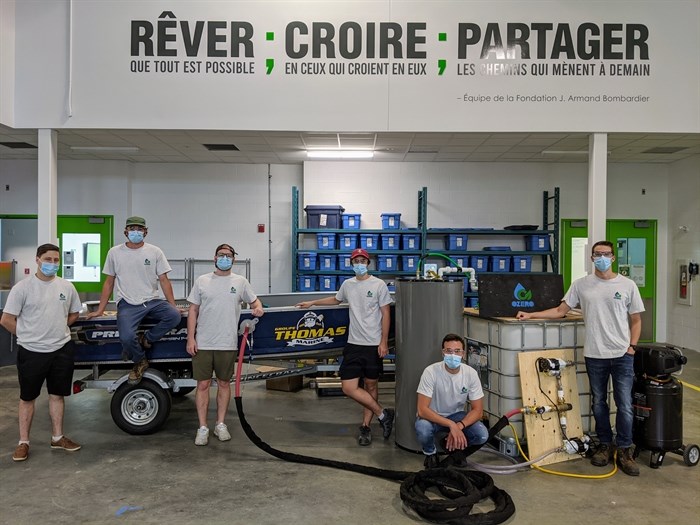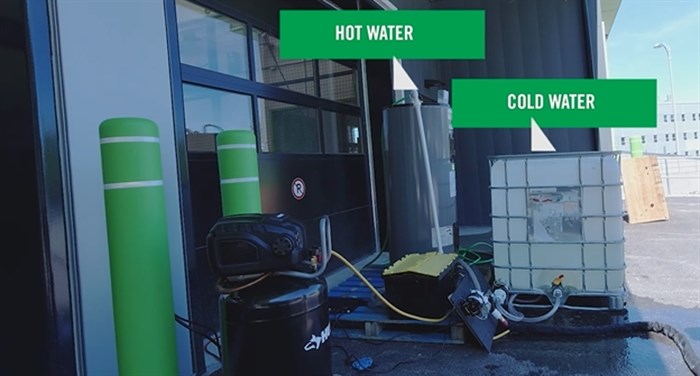
These Sherbrooke University students are trying to rid boats of zebra mussels. Left to right are: Christophe Morin, Maxime Guay, Benjamin Farley, Matys Tessier, Olivier Harpin and Olivier Liberge.
Image Credit: Submitted/Ozero
July 01, 2020 - 7:32 AM
While conservation officers use sniffer dogs to try to stop invasive zebra mussels from contaminating lakes in the Interior, a new tool in the battle to keep B.C. mussel free is being developed in Quebec.
A group of Sherbrooke University students are cleaning out boat ballasts to rid them of mussel larvae that might otherwise slip by the sniffer dogs.
“This summer we’re finalizing the technology,” Olivier Liberge, communications manager for Ozero, told iNFOnews.ca. “We want to improve it so it’s easier to operate and try to put it all in a trailer to go from municipality to municipality. We hope some municipalities will be interested in buying our system.”
Ozero was co-founded by the six students who recently won an Okanagan Basin Water Board grant competition.
The invasive zebra mussels have been a concern of the water board and the provincial Ministry of Environment for years. The province has been using inspections and sniffing dogs at the Alberta and U.S. borders to try to keep the shrimp from getting into B.C. lakes.
READ MORE: Overloaded B.C. invasive mussel-sniffing dog getting help
While there are heavy concentrations of the zebra mussels in Ontario and Manitoba, they are making headway in Quebec as well.
Liberge can’t say how many lakes are now infested in Quebec but many municipalities have boat cleaning stations that use power washers to rid the hulls of the mussels. But ballast intakes can suck in millions of mussel larvae that can live up to 30 days, Liberge said, long enough for them to be transported to B.C.
While ballast tanks are supposed to be emptied at the cleaning stations, that doesn't fully drain them, Liberge said.
The concept for killing them off is simple – just flush the ballasts with a mixture of hot and cold water that reaches 55C and kills the larvae.
This summer, Ozero will also be collecting data on how many boats are actually sucking mussel larvae into their ballast tanks out of Quebec lakes in order to show the importance of making ballast flushing an essential the part of the cleaning process before boats head off to other lakes.

Hot and cold water is pumped into the ballast to kill the zebra mussel larvae.
Image Credit: Submitted/Ozero
To contact a reporter for this story, email Rob Munro or call 250-808-0143 or email the editor. You can also submit photos, videos or news tips to the newsroom and be entered to win a monthly prize draw.
We welcome your comments and opinions on our stories but play nice. We won't censor or delete comments unless they contain off-topic statements or links, unnecessary vulgarity, false facts, spam or obviously fake profiles. If you have any concerns about what you see in comments, email the editor in the link above.
News from © iNFOnews, 2020